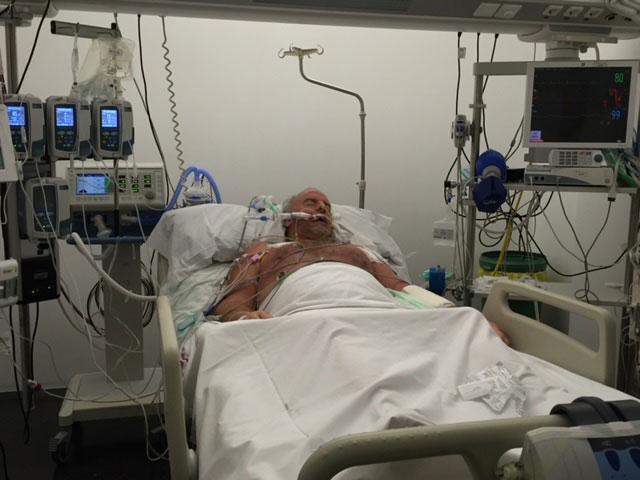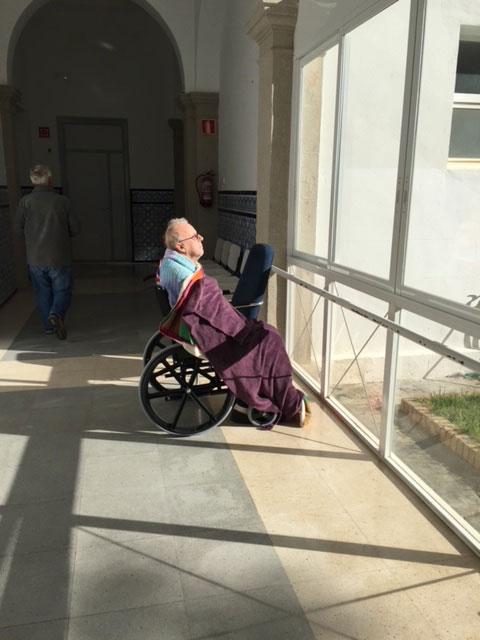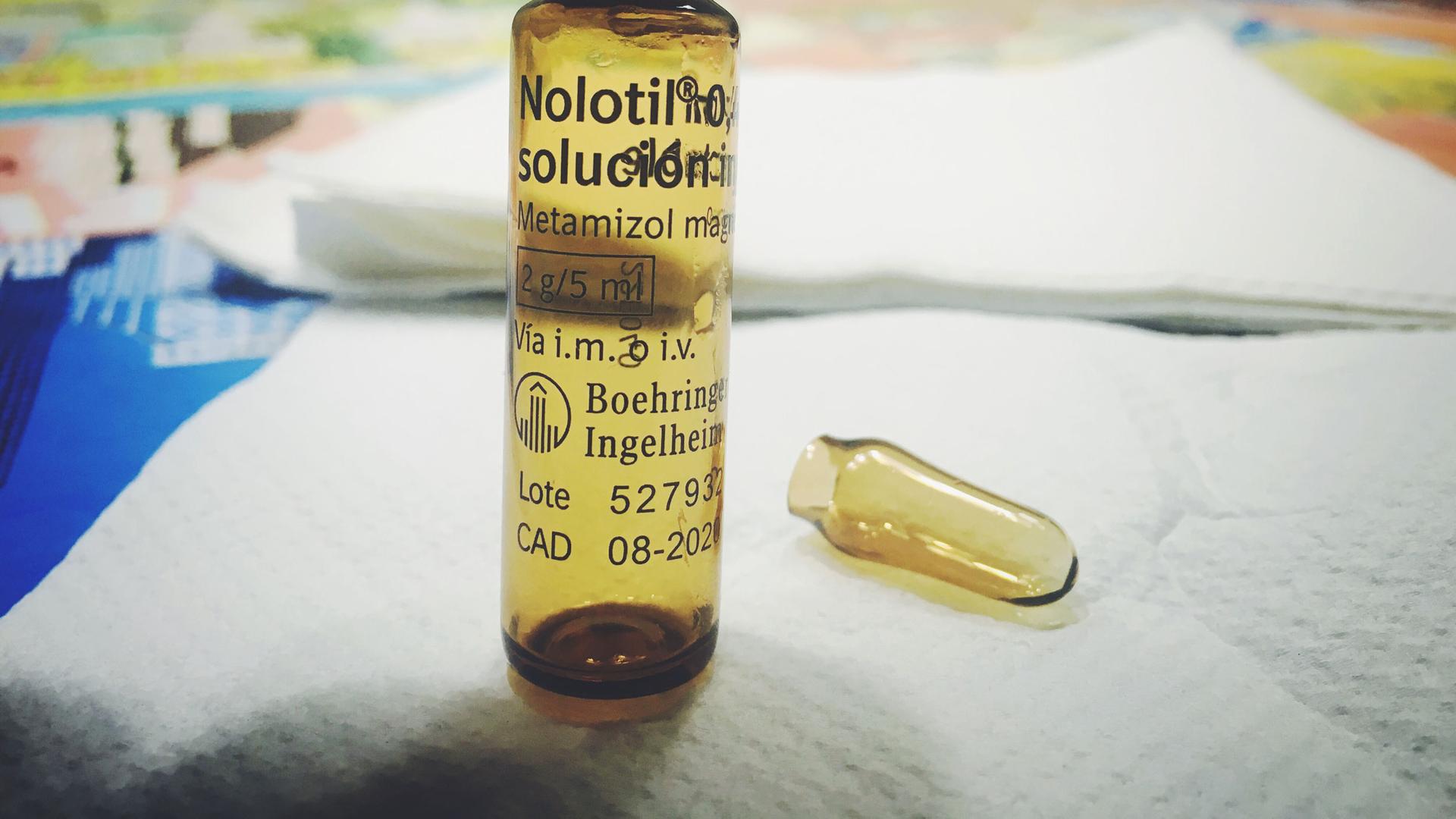‘People are dying’: A popular painkiller in Spain may have killer side effects
Patrick Clancy, a retired oil worker from Surrey, in the United Kingdom, had a routine shoulder operation in a hospital in Alicante, Spain, in 2017.
Clancy was told the procedure was a success and 24 hours later, he was sent home with a prescription for the painkiller metamizole, sold in Spain under the brand name Nolotil.
Within three weeks, the 74-year-old man was in a coma.

Nolotil is one of the most widely sold prescription medicines in Spain but it is banned in more than 30 countries worldwide including the UK, US, Canada and Australia. The drug was withdrawn because it can cause a condition known as agranulocytosis, which reduces white blood cells, increasing the risk of a potentially fatal infection.
The Association of Drug Affected Patients (ADAF) is now suing the Spanish government, saying it is failing to protect people against the drug’s potentially adverse effects.
Cristina García del Campo, a medical translator based in Jávea in Alicante, has heard of several cases similar to Patrick Clancy’s.
In November 2017, one of her clients, an Irish man, fell seriously ill and was rushed to hospital. Days later, he died from sepsis and multi-organ failure, according to del Campo.
“I couldn’t believe how somebody could have gone from being OK to suddenly developing this infection and dying — and it just seemed too horrific,” she said.

García del Campo said she couldn’t stop thinking about his sudden death. She was aware of his diagnosis of anal cancer months prior, but his doctors said his condition was highly treatable.
She noticed he had been prescribed Nolotil for pain. Later, she discovered that the drug had never been authorized for use in Ireland, was prohibited for sale in the UK, and had been banned by the Food and Drug Administration (FDA) in the US in 1977.
García del Campo learned about another Irishman, William “Billy” Smyth, age 66, from Mullingar, Ireland, who had died suddenly from septic shock in Spain, the previous year.
Smyth was visiting the Spanish town of Torrevieja when he was prescribed Nolotil for shoulder pain. He took the medication for five days. Two months later he died from septic shock. Doctors at the hospital said it appeared Nolotil had caused a toxic poisoning in Smyth’s bone marrow, which caused him to stop producing white blood cells, Smyth’s son, Derek, said.
García del Campo posted messages on expat forums in Spain to ask about adverse reactions to the drug.
She said she was inundated with stories in the weeks that followed.
In 2018, with details of more than 100 cases, she approached the Spanish Health Ministry, demanding that they investigate.
“I told them something needs to be done about it because people are dying and unless you want to lose all the tourism in Spain because people will be afraid of coming here and being given this, you need to do something.”

A few months later, Spain’s medicines and health products agency, the AEMPS, introduced new guidelines for Nolotil (metamizole). It recommended not prescribing the drug to tourists (described as the “floating population”). The drug should only be taken on prescription and a blood test would be required for treatment lasting longer than seven days.
Patients should also be told to watch out for symptoms of agranulocytosis, the agency said.
García del Campo believes many doctors and pharmacists paid little attention to the advice.
Last month, a British journalist reported that he was handed two packets of Nolotil over the counter in a pharmacy in Alicante without a prescription. Data from Spain’s Medicine and Health Products Agency, the AEMPS, reports 457 cases of agranulocytosis associated with Nolotil between 1990 and 2023.
In November, the Association of Drug Affected Patients (ADAF) initiated legal proceedings against the Spanish government.
García del Campo, who founded the group, said many of the cases she has seen are British and Irish expats or holidaymakers.
Her report, which includes 350 cases, also details a 2009 study suggesting that the British population may be more susceptible to the drug’s side effects. This has not been confirmed by independent scientific study.
García del Campo said since news of the lawsuit became public, she has been made aware of around 40 more cases of severe adverse reactions to the drug.

The ADAF patients’ group wants the medication to be banned in Spain for people from countries where it is already prohibited and for stricter controls to be introduced around its administration. Ultimately, García del Campo said she would prefer to see the drug taken off the market in Spain altogether.
It’s not only expats and tourists who are suffering, she said, or elders.
“There is a 32-year-old man who twisted his ankle in the street and broke a part of his leg. They gave him Nolotil and his leg got such an infection, they actually thought they would have to amputate it.”
He’s now permanently disabled, she said.
The company that makes Nolotil, Boehringer Ingelheim, said the drug has been ”used by patients for almost 100 years, with an established and well-known safety profile.”
A statement from the company states: “Nolotil should only be administered with a medical prescription and the side effect of agranulocytosis is addressed in the current product information.” The drug is not marketed in the United Kingdom, the company added.
Patrick Clancy, who remained in a coma for 39 days, said he would like to see Nolotil banned outright in Spain. Clancy had been diagnosed with agranulocytosis as a result of an adverse reaction to the prescription painkiller.
Doctors told Clancy’s family to travel to Spain immediately because they did not think he would survive the weekend.

Clancy spent three months in the hospital and still suffers some side effects.
“I feel as though I’ve got the flu all the time; I’ve shooting pains down my fingers and my feet and the exhaustion is terrible,” he said.
“One doctor said to me at the time, it’s like a nuclear bomb has gone off in your body,” Clancy said.
Cristina García del Campo said she’s determined to keep raising awareness about the drug — no matter what happens.
The national court in Madrid is expected to issue a ruling within three months.
Our coverage reaches millions each week, but only a small fraction of listeners contribute to sustain our program. We still need 224 more people to donate $100 or $10/monthly to unlock our $67,000 match. Will you help us get there today?
